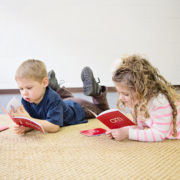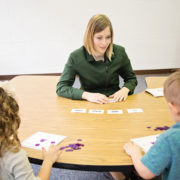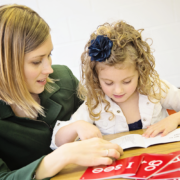Surviving the School Day
Surviving the school day… that may sound harsh. But… a school day can be long for young kids. For many kids staying focused throughout the day while in a classroom full of other kids which at times is loud can be tough. Although many classrooms are highly structured and play time is incorporated into these schedules. For some kids, it is not enough or not what they are used to.
How does this play out at home? Has your child gotten off the bus or home from school and then… BAM… has a meltdown? My youngest son did this regularly during his first few years of school. What we determined was that he spent a lot of his energy trying to stay focused throughout the school day and he simply needed a break. Why did he wait to have the meltdown at home? Because it was a safe space for him. He walked in the door and let his emotions out. At first… this was not a pretty sight at our home. My older son had not reacted this way. I assumed he hated school, he was being picked on, he was struggling academically. After a little research and many conversations with educators, I realized he was emotionally and physically exhausted. So, as I learned how to help him and he learned how to articulate his emotions. We could work better together. Now we schedule “my time” for him everyday after school. When he gets home he either goes to his bedroom or a quiet place in our home and recuperates. He doesn’t nap. He may watch TV, play on a computer, read a book, it is something different depending on what he needs. I try very hard not to schedule anything for him right after school. Does it always work out perfectly? Of course not. If we have an appointment or a practice, I let him know that he will get some down time. Just knowing that a break is coming has always helped him.
School days can be intense for young learners. The day is full of a wide range of emotions. Kids are excited to be on this adventure, kids are terrified to be away from their homes, kids are ecstatic to be with their friends, kids are nervous about learning new materials, kids are…. You get the picture. Being on a roller coaster is exhausting, being on a roller coaster of emotions is hard for young kids. As parents, guardians, day care providers… when kids get home from school they need a break. I highly recommend you give your kid that time to recover. For some kids, eight hours of following rules, behaving, and sitting at a desk is more than they can handle When they get home they need time to pull it all back together.
As my son has gotten older and more used to the school schedule he has learned how to express his emotions and there are days he does not need “my time.” Part of this is due to experience and getting used to the routine of school and part is due to simply growing up and maturing. As kids get older they learn to transition from school expectations to home expectations. They teach themselves (with the help of caring adults) coping mechanisms to get through the day. If your child is having regular “meltdowns” at the end of the day. Try giving him a little time. Try letting him determine his next activity.





